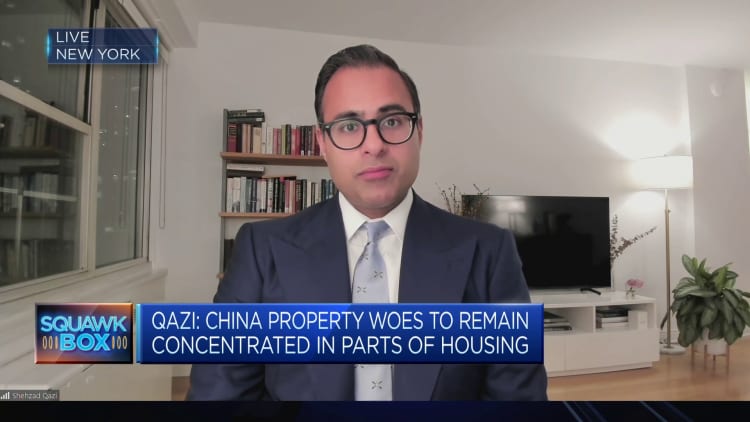Ray Dalio, founder of Bridgewater Associates, received an award from the China General Chamber of Commerce-USA in February 2022.
China News Service | China News Service | Getty Images
Ray Dalio, chief investment officer at Bridgewater Associates, took to LinkedIn on Tuesday to defend his continued investments in China — a market he views as crucial to “understand the world” and for “diversification.”
His recent post follows a 4,000-word essay shared last week, which discussed the possibility of a “100-year storm” in China and warned of a “lost decade” if Beijing repeats the mistakes of Japan in the 1990s.
In his follow-up, Dalio defended his decision not to abandon the Chinese market “when things get tough,” claiming he is neither “a fair-weather friend” nor “a fair-weather investor.”
“Investing in China has been a success for me in all the ways that I hoped to be successful, including demonstrating to investors how they can do well in both bear and bull markets,” the head of the world’s largest hedge fund said.
“[T]here is no such thing as a bad market; there is only bad decision making. I find the markets in China good for my type of decision making,” he added.
China headwinds
In his post last week, Dalio listed depressed prices, wealth gap, climate change and conflict with the U.S. as major challenges facing the China’s economy.
China’s problems, however, are “manageable by Chinese leaders if they do their jobs well,” Dalio said, adding there have been signals that Beijing will begin quantitative easing along with debt restructuring soon.

“The time to buy is when everyone hates the market and it’s cheap … especially when it looks increasingly likely that the economic leadership is about to do something” Dalio said.
“Like all countries throughout history, they can restructure the financial system economy to be productive. They can also manage how to deal with political, geopolitical, nature, and technology forces well,” he added.
Dalio acknowledged that some investors avoid China due to geopolitical risks, its status as a “communist dictatorship,” rivalry with the U.S., and the possibility of a deeper conflict between the world’s two largest economies.
However, Dalio added, none of the challenges outweigh the reasons for investing in China.
“For those reasons, to me the key question isn’t whether or not I should invest in China so much as how much I should invest,” he added.
Dalio has in the past invited criticism, including from U.S. politicians, for his bullishness on China.
Credit: Source link













